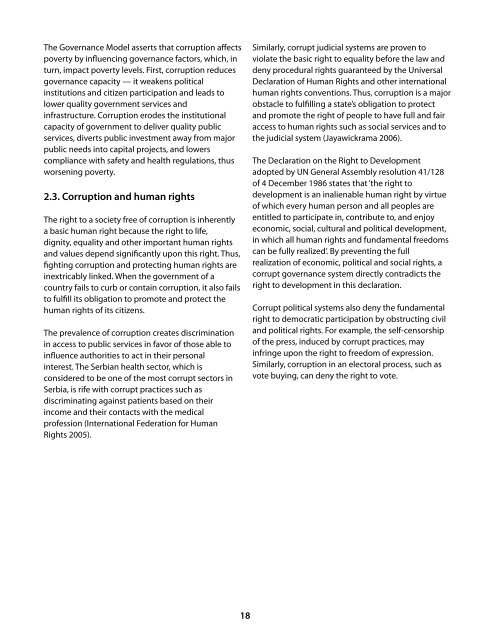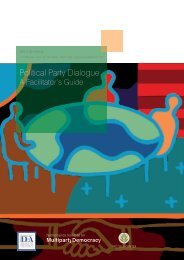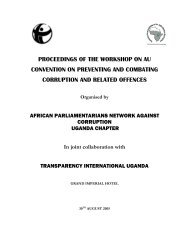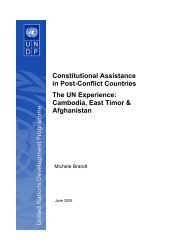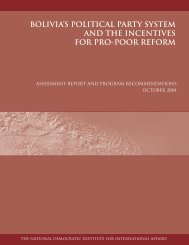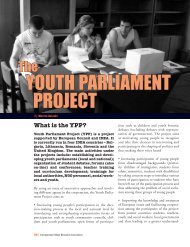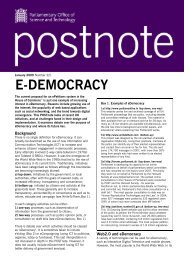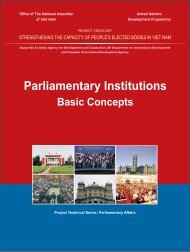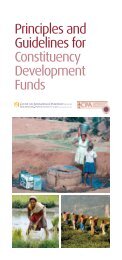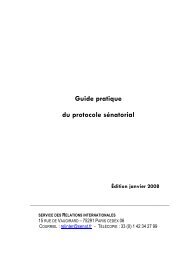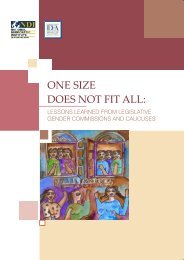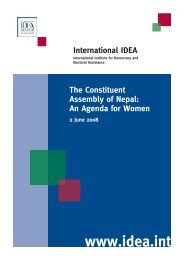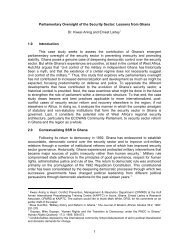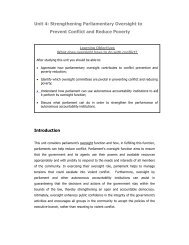Corruption and Development - pogar
Corruption and Development - pogar
Corruption and Development - pogar
You also want an ePaper? Increase the reach of your titles
YUMPU automatically turns print PDFs into web optimized ePapers that Google loves.
The Governance Model asserts that corruption affects<br />
poverty by influencing governance factors, which, in<br />
turn, impact poverty levels. First, corruption reduces<br />
governance capacity — it weakens political<br />
institutions <strong>and</strong> citizen participation <strong>and</strong> leads to<br />
lower quality government services <strong>and</strong><br />
infrastructure. <strong>Corruption</strong> erodes the institutional<br />
capacity of government to deliver quality public<br />
services, diverts public investment away from major<br />
public needs into capital projects, <strong>and</strong> lowers<br />
compliance with safety <strong>and</strong> health regulations, thus<br />
worsening poverty.<br />
2.3. <strong>Corruption</strong> <strong>and</strong> human rights<br />
The right to a society free of corruption is inherently<br />
a basic human right because the right to life,<br />
dignity, equality <strong>and</strong> other important human rights<br />
<strong>and</strong> values depend significantly upon this right. Thus,<br />
fighting corruption <strong>and</strong> protecting human rights are<br />
inextricably linked. When the government of a<br />
country fails to curb or contain corruption, it also fails<br />
to fulfill its obligation to promote <strong>and</strong> protect the<br />
human rights of its citizens.<br />
The prevalence of corruption creates discrimination<br />
in access to public services in favor of those able to<br />
influence authorities to act in their personal<br />
interest. The Serbian health sector, which is<br />
considered to be one of the most corrupt sectors in<br />
Serbia, is rife with corrupt practices such as<br />
discriminating against patients based on their<br />
income <strong>and</strong> their contacts with the medical<br />
profession (International Federation for Human<br />
Rights 2005).<br />
Similarly, corrupt judicial systems are proven to<br />
violate the basic right to equality before the law <strong>and</strong><br />
deny procedural rights guaranteed by the Universal<br />
Declaration of Human Rights <strong>and</strong> other international<br />
human rights conventions. Thus, corruption is a major<br />
obstacle to fulfilling a state’s obligation to protect<br />
<strong>and</strong> promote the right of people to have full <strong>and</strong> fair<br />
access to human rights such as social services <strong>and</strong> to<br />
the judicial system (Jayawickrama 2006).<br />
The Declaration on the Right to <strong>Development</strong><br />
adopted by UN General Assembly resolution 41/128<br />
of 4 December 1986 states that ‘the right to<br />
development is an inalienable human right by virtue<br />
of which every human person <strong>and</strong> all peoples are<br />
entitled to participate in, contribute to, <strong>and</strong> enjoy<br />
economic, social, cultural <strong>and</strong> political development,<br />
in which all human rights <strong>and</strong> fundamental freedoms<br />
can be fully realized’. By preventing the full<br />
realization of economic, political <strong>and</strong> social rights, a<br />
corrupt governance system directly contradicts the<br />
right to development in this declaration.<br />
Corrupt political systems also deny the fundamental<br />
right to democratic participation by obstructing civil<br />
<strong>and</strong> political rights. For example, the self-censorship<br />
of the press, induced by corrupt practices, may<br />
infringe upon the right to freedom of expression.<br />
Similarly, corruption in an electoral process, such as<br />
vote buying, can deny the right to vote.<br />
18


